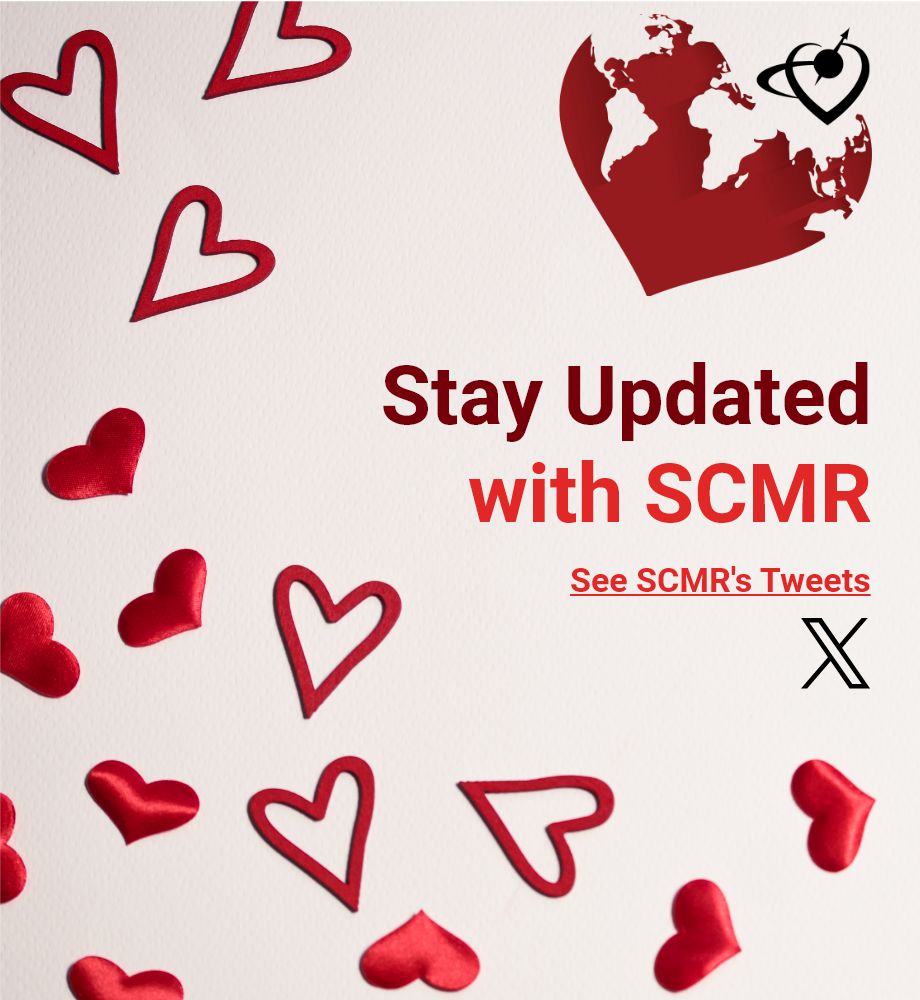2025
- Neda Tavakoli, Georgia Institute of Technology, Atlanta, GA, USA.
2024
- Ye Tian, University of Southern California, Los Angeles, CA, USA.
2023
- Felicia Seemann, NHLBI/NIH, Bethesda, MD, USA. Unmasking latent heart failure through changes in lung water by exercise
2022
- Justin Canada, Virginia Commonwealth University, Richmond, VA, USA. Feasibility and reproducibility of non-invasive MR oximetry with an exercise stress CMR and cardiopulmonary exercise testing (ExeCMR+CPET) (Clinical)
- Junyu Wang, Unversity of Virginia, Charlottesville, VA, USA. DEep learning-based rapid Spiral Image Reconstruction (Basic)
2021
- Debbie Falconer, Royal Free, London, UK – A novel re-usable, CMR-compatible ECGi vest for large-scale clinical research use: SMART-ECGi (Clinical)
- Amita Singh, University of Chicago, Chicago, IL, USA. Multicenter Study of Automated Quantitative (AQUA) Myocardial Perfusion to Improve Stress CMR Interpretation and Reporting (Basic)
2020
- Bradley Allen, Northwestern University, Chicago, IL, USA. Evaluating Multi-Institution Variability in 4D flow MRI Hemodynamic Characterization of Type B Aortic Dissection with 3D Printed Models.
“I received the award during my first year as faculty and it was very important and meaningful to me in that early stage. First, from a career development standpoint, the recognition associated with the seed grant was validation of my research ideas (which were very much still in development during those early days) and also of my place/future in the SCMR community. Receiving the award was encouragement to “keep going” and continue to work to build out my research team and programs. While the financial impact of the award was relatively small, I was able to use the award as part of a funding base that provided critical scan time, research team support, and equipment. Preliminary data and tool development directly supported by these funds have led to several key publications in type B aortic dissection and have been instrumental in generating multiple competitive grant proposals including an NIH R01. The seed grant is an excellent mechanism for supporting the research careers of SCMR members and helping the community to continue to grow and thrive.”
- Nivedita K. Naresh, University of Colorado, Denver, CO, USA. MRI fOr Cardiotoxity in Kids (MOCK)
2019
- Jesse Hamilton, Case Western Reserve University, Cleveland, OH, USA. Cardiac CINE Magnetic Resonance Fingerprinting (Basic).
- Upasana Tayal, Imperial College, London, UK. Novel approaches to cardiovascular magnetic resonance data science in dilated cardiomyopathy (Clinical)
2018
- Yan Wen, Cornell University, Ithaca, NY, USA. Assessment of Heart Chamber Oxygenation Using Quantitative Susceptibility Mapping (Basic).
- Anthony Christodoulou, Cedars-Sinai Medical Center, Los Angeles, USA. Towards a Push-Button, Single Scan Quantitative CMR Exam (Clinical)
“The seed grant was my first grant application, so it gave me an opportunity to get grant-writing mentorship, which came from Debiao Li. I still use the skills I learned from those mentoring sessions. It was my first external funding, so it gave me PI status at my institution, and official recognition of my lab. This made me eligible for several internal resources: a lab webpage, networked data storage, and my first peek behind the curtain at post-award accounting. My seed grant proposal and the pilot data the grant generated became the starting point for a successful R01, my first. This fully established me and turned my faculty research scientist position into an Asst Prof academic appointment.”
2017
- Gabriella Captur,Barts Heart Centre, London, UK. Mapping by Dark Blood SASHA- A Novel Quantitative Biomarker for Investigating Lamin DCM
“I was awarded the SCMR seed grant in 2017 to conduct pilot work related to dark blood T1 mapping. I had just completed my post-doctoral studies and was on the brink of applying for a consultant position. It was therefore a particularly stressful time both clinically and academically, particularly given that 3 earlier grants that year had been turned down for funding. Yet, this seemingly modest SCMR seed grant gave me a career boost like no other: I got to attend the SCMR congress and the award ceremony quite literally supercharged me.
The SCMR seed grant award was my academic life-line in the nick of time – I went on to: publish the results on dark-blood SAPPHIRE T1 mapping; become an academic cardiologist at the Royal Free and UCL; secure >£1million in research funding from various organisations (BHF, NIHR BRC and Barts Charity); set up my own CMR research group that now includes 4 PhD fellows, 6 iBSc students, 3 MD students and 3 RAs; lead my first large-scale population-based CMR-ECGi epidemiological study. I hope these words suffice to convey exactly how critical this SCMR kryptonite was to my career trajectory.”
- Yibin Xie, Cedars-Sinai Medical Center, Los Angeles, CA, USA. Highly-Efficient Quantitative CMR Evaluation of Coronary Atherosclerosis
2016
- Zhengwei Zhou, Cedars-Sinai Medical Center, Los Angeles, CA, USA. Novel CMR-characterized tissue biomarkers







